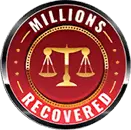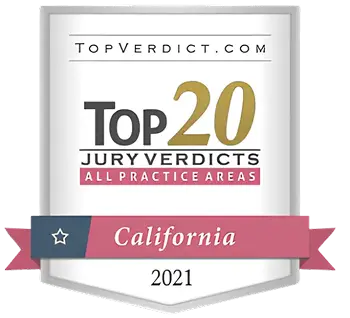If you find yourself in a car accident, you may feel paralyzed on what to do next to keep yourself safe. Whether you’re dealing with a minor fender-bender or a more serious collision in California, it’s essential to know what to do next to protect your safety, well-being, and legal rights.
At Compass Law Group, LLP, we want to make sure you feel prepared in the event of an accident. This guide outlines what to do after a minor car accident to keep yourself safe, fulfill your legal obligations, and lay the groundwork for a potential insurance claim or personal injury case.
1. Ensure Immediate Safety and Get Medical Attention
After an accident, your priority should always be making sure you and others are safe. Accidents, no matter how minor, can lead to injuries that might not be immediately apparent. Below are the critical actions you should take:
- Move to a Safe Location: If possible, move your vehicle to the side of the road or a safe area to avoid blocking traffic or creating additional hazards.
- Check for Injuries: Assess yourself and others for injuries. If anyone is hurt, do not attempt to move them unless there’s a risk of further danger (e.g., a fire or another collision).
- Contact Emergency Medical Service: In the event of severe injuries, call emergency personnel to send medical services your way.
Tips:
- After an accident, your body might be flooded with adrenaline, which can mask the full extent of your injuries. It’s crucial to seek immediate medical attention, even if you feel fine.
- Under California law, you are legally required to remain at the scene of an accident, especially if there are injuries, fatalities, or property damage. Failing to do so can result in criminal charges.
2. Call 911 and Report the Crash
Once you know everyone is safe and you have contacted emergency medical services, the next step is to report the crash to the appropriate authorities. California law requires that certain accidents be reported, and doing so properly can protect your rights and help streamline your insurance claim process.
- Call the Police or CHP: In California, accidents involving injuries or significant property damage should be reported to the police. If you’re involved in an accident on a highway or state route, you may need to call the California Highway Patrol (CHP) instead of local police.
- Provide Information to Authorities: When the authorities arrive, give them all the necessary details about the accident. This includes information about the crash itself and any contributing factors.
Tips:
- When reporting the crash, be prepared to provide the following:
- Date, time, and location of the accident.
- Names and contact information of the involved parties.
- Description of the crash and any injuries.
- Your insurance details and vehicle information.
- Under California law, serious accidents must be reported to the California Department of Motor Vehicles (DMV) within 10 days. You’ll need to fill out the SR-1 form, which documents the crash for official records.
3. Document the Scene and Exchange Information
Accurate documentation is essential to protecting your rights after an accident. Taking detailed notes and photos at the scene will help build a solid foundation for your insurance claim and any potential legal proceedings.
Capture as many photos as possible, including:
- Vehicle damage (both yours and the other vehicle’s)
- License plates and vehicle identification numbers (VINs)
- Injuries, if visible
- The surrounding area (road conditions, traffic signs, etc.)
- Any debris or skid marks that could help clarify the accident’s cause
Be sure to exchange the following details with the other driver:
- Full name and contact information
- Driver’s license number
- Insurance policy number
- Vehicle registration details (VIN)
- Make, model, and color of each vehicle
Tips:
- When photographing the scene, ensure you capture clear, wide-angle shots of the damage, the location, and any signs or signals that could explain the crash.
- Even if you think you might have caused the accident, avoid making any statements that could be interpreted as an admission of guilt. Apologizing or saying “I’m sorry” could be misconstrued and harm your case.
4. Notify Your Insurance Company & Protect Your Claim
Notifying your insurance company as soon as possible after a car accident helps protect your claim and ensures that you comply with your policy’s requirements. Timely reporting can speed up the claims process, enabling faster recovery and minimizing the risk of complications.
- Contact Your Insurer Within 24–48 Hours: Most insurance policies require you to report an accident within a specific time frame (typically 24–48 hours). The sooner you contact your insurance company, the better.
- Avoid Recorded Statements Without Legal Counsel: While your insurance company may ask you for a recorded statement, avoid giving one without consulting an attorney first. Anything you say can potentially be used against you, and it’s important to ensure your rights are protected.
- Document Everything: Keep detailed records of all interactions with your insurer, including phone calls, emails, and any documentation you provide.
Tips:
- Documenting your interactions and the evidence you gather (photos, medical records, etc.) will strengthen your case and ensure you are fully prepared to move forward with your claim.
- When communicating with your insurance provider:
- Do: Provide basic details about the accident, such as date, time, location, and the parties involved.
- Don’t: Admit fault or agree to a settlement offer without consulting a legal professional, as this could limit your ability to seek fair compensation.
5. Consider Legal Representation, Especially for Significant Injuries
While some car accidents may seem straightforward, others involve significant injuries, multiple parties, or complicated insurance issues. If you’ve been involved in a serious accident or if the other driver was uninsured or underinsured, it’s important to consider seeking legal representation.
- Legal counsel is particularly beneficial if:
- You’ve sustained significant or permanent injuries.
- The accident involves multiple vehicles or parties.
- You are facing disputes regarding fault.
- The other driver is uninsured or underinsured.
- California’s Comparative Fault Law: California follows a comparative fault system, meaning that even if you are partially at fault for the accident, you can still recover damages. An attorney can help assess your case and ensure that your share of responsibility is properly calculated.
Tips:
- In California, you have two years from the date of the accident to file a personal injury claim. If you miss this deadline, you may forfeit your right to pursue compensation.
- An attorney can help you fight for compensation for lost wages, medical expenses, pain and suffering, and emotional distress.
6. Follow-Up Steps for Recovery and Claims
In the aftermath of a car accident, caring for your health and recovery should be your top priority. Document your recovery process and how it impacts your quality of life, as these additional notes can strengthen your car accident claim.
- Monitor Your Health: Some injuries, such as whiplash or soft tissue damage, may not manifest immediately. It’s essential to stay on top of your medical care and keep detailed records of any new symptoms or issues that arise.
- Keep a Personal Injury Journal: Document your pain levels, treatments, medical appointments, and how the injuries affect your daily life. This will provide valuable evidence if you need to demonstrate the long-term impact of your injuries during settlement negotiations or court proceedings.
- Work with Your Doctors: Keep in touch with your healthcare providers to ensure that your treatment plan is appropriate for your recovery. Following their advice will not only aid in your healing but also help build a strong case for your claim.
Tips:
- If your injuries prevent you from working, be sure to keep track of any lost wages. Document the time you’ve missed from work and the impact on your income.
- Insurance companies may offer a quick settlement to close the case. However, accepting an early offer can result in a lower payout that doesn’t cover future medical costs or lost wages. Consult an attorney before agreeing to any settlements.
7. Protect Yourself for the Future
While taking the proper steps in the aftermath of a car accident helps protect your rights, there are things you can do before an accident even happens to proactively make the process easier. Preparing for a car accident ensures you are ready for the unexpected and have everything in order.
- Review Your Insurance Coverage: Regularly review your auto insurance policy to ensure it provides sufficient coverage, especially for medical expenses and liability. In California, the minimum coverage limits are:
- $15,000 for injury or death to one person,
- $30,000 for injury or death to more than one person, and
- $5,000 for property damage.
- Keep an Accident Checklist in Your Glovebox: Having a checklist readily available can help you stay organized and focused during a stressful situation.
- Invest in a Dash Cam: Dash cameras are becoming an increasingly popular tool for protecting drivers. By recording footage of the incident, a dash cam can provide clear evidence of what happened.
Tips:
- Keep an emergency contact card in your wallet or phone. This card should list important contacts, such as family members, your insurance agent, and your attorney.
- Although accidents can happen at any time, defensive driving can help reduce your chances of being involved in one. Stay alert, avoid distractions, and always follow traffic laws to keep yourself and others safe.
How Our Firm Can Help You After a Car Accident in California
If you’ve been involved in a car accident in California, Compass Law Group, LLP is here to help you navigate the legal complexities of your case. With years of experience in personal injury law and a proven track record of success, our team is here to walk you through what to do after a car accident.
Whether you need assistance with filing your car accident claim, dealing with insurance companies, or navigating California’s comparative fault laws, we’re here to fight for your rights. We offer a free, no-obligation consultation to discuss the details of your case and explore your legal options.
Contact us today to schedule your free consultation and learn how we can assist you.




